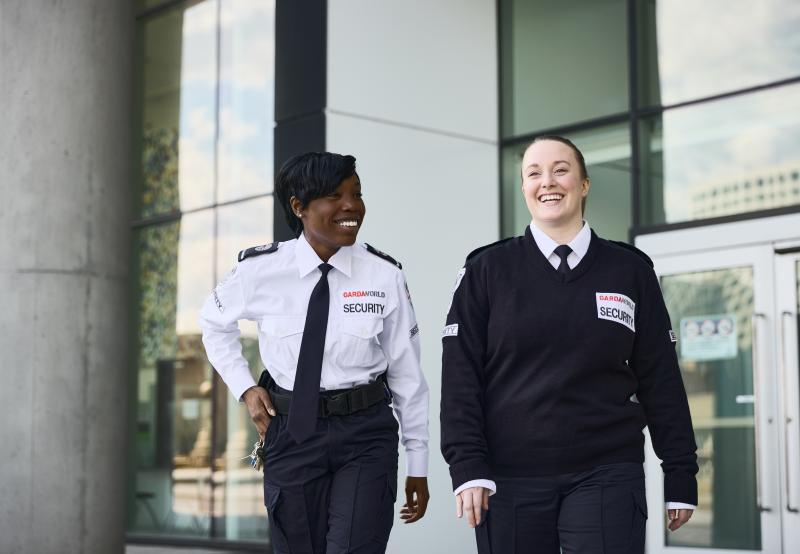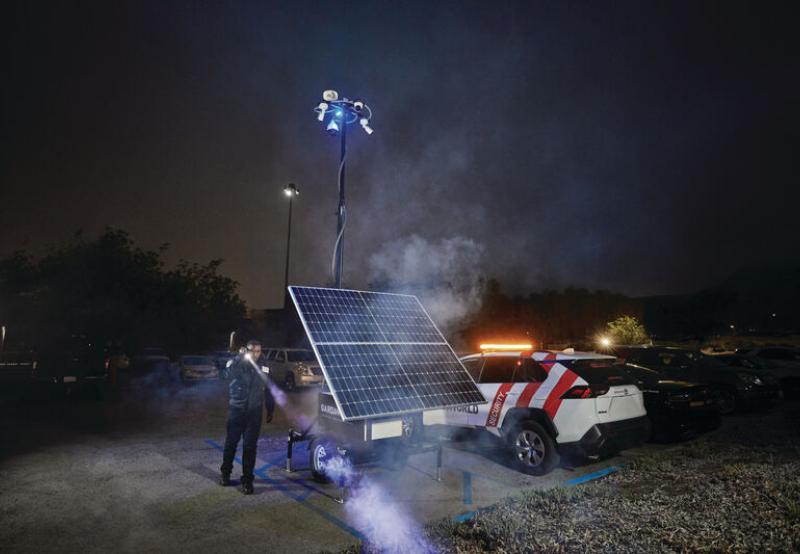
When considering engaging a security company to provide you with protective services, it’s important to ask this key question: If a threat emerges or an emergency arises, would their personnel react and respond in an appropriate way?
It is possible for security firms to provide people who are not properly screened, trained or even equipped adequately, with the intention of providing a deterrent. However, like a video camera without a power source, the benefit of either may be little to no value if an undesirable event were to occur.
In stark contrast, the rising demand for highly qualified and trained security professionals is what drives the growth of GardaWorld’s Protective Services division. Its 22,000 members guard Canada’s critical infrastructure such as airports and financial institutions as well as oilfields, major construction sites, hospitals, commercial office buildings, special-event venues and a lot of other sites as well.
Although our guards protect property valued in trillions, the value of the peace of mind they provide is priceless, especially when emergencies or threats arise. That’s because they know what to do. And by knowing what to do, they can help reduce the risk profile of a business or property considerably. Here are three basic but vital questions to ask any prospective security providers:
1- How do you screen job candidates?
Selecting and then deploying a professional security staff, that can be relied upon to respond appropriately to threats and emergencies, starts with hiring the right people. We do that by carefully screening all of our candidates — in ways you might not expect.
Of course, we conduct background investigations as well, to ensure that our hiring processes only target those people with the required skills and attributes. We specifically look for candidates who are intelligent, adaptable and who possess good judgment and well developed people skills.
But we also seek motivated individuals who want to make a career with us. And they can as we offer competitive advantages:
-
we typically pay more than our competitors, depending on the market;
-
we guarantee important medical benefits;
-
we provide career paths, so our people can move both laterally and hierarchically with pay raises and more responsibilities along the way.
2- How do you train your staff?
Next our security teams are highly trained in a number of areas, with regular refresher sessions to ensure they’re always prepared to respond in the right way, no matter what the situation. Some training is specific to a particular industry or market vertical such as our training for financial institutions. Additionally, our ever-increasing library of security and service related e-learning modules provide our personnel with the perfect opportunity for continuous learning, leading to career advancement.
A considerable amount of our Asset Protection training is cross-functional and thereby applicable for many thousands of our employees as they carry out their duties each and every day at many of our clients’ sites.
Below are some examples. Feel free to use this as a checklist of questions to ask other security firms you may be interviewing how they train their people in these same areas.
-
How to respond to various levels of threats and challenges, using GardaWorld’s own advanced safety, security and emergency first-aid protocols
-
How to act within the framework of public laws and regulations
-
How to prevent situations from escalating and de-fusing ones that have
-
How to operate most major fire and security systems, including video surveillance
-
How to respond in accordance with the customer’s own standards and protocols for:
-
Environmental threats and risks
-
Health and safety
-
Fire and security systems
-
Engaging stakeholders—employees, customers, clients, suppliers, travelers and other constituents
-
Liaison with First Responders (emergency and non-emergency)
-
-
How to mitigate risk in hazardous industrial environments like the oil fields, where they usually face the same onsite risks as our customers’ employees do, too
3- How do you match staff with client needs?
After we hire and train our people, we purposefully seek to best match their personality types and interests with our customers’ requirements and environments.
Some individuals for example, prefer the oilfields for the demands of their, frontier-like surroundings, while others may prefer working among the close-knit community of a medical centre.
Some might want to work in different venues, like concerts and special events where they see and meet new people all the time, while others might enjoy working in one place day after day, where they get to know the people they work with and who come and go.
In trying to match our people with our customers’ needs and environments, we help them:
-
get established in their security roles much more quickly;
-
become better engaged in the customers’ business and the social fabric of its people.
While various security monitoring technologies have been around for decades, the need has never been greater for those to be balanced by a good measure of human intelligence and consideration—such as that which is provided by the committed, trained professionals who make up GardaWorld’s Protective Services.
For more information about GardaWorld Protective Services, visit our website.








